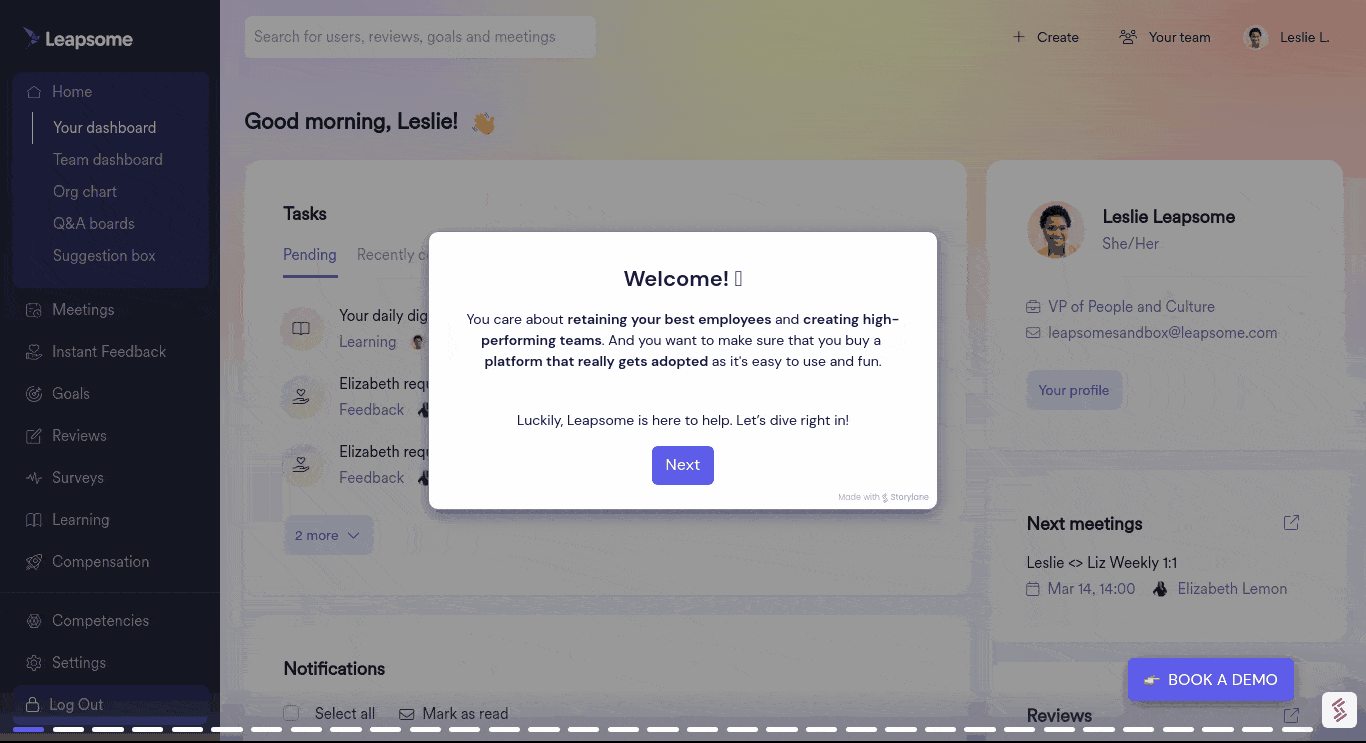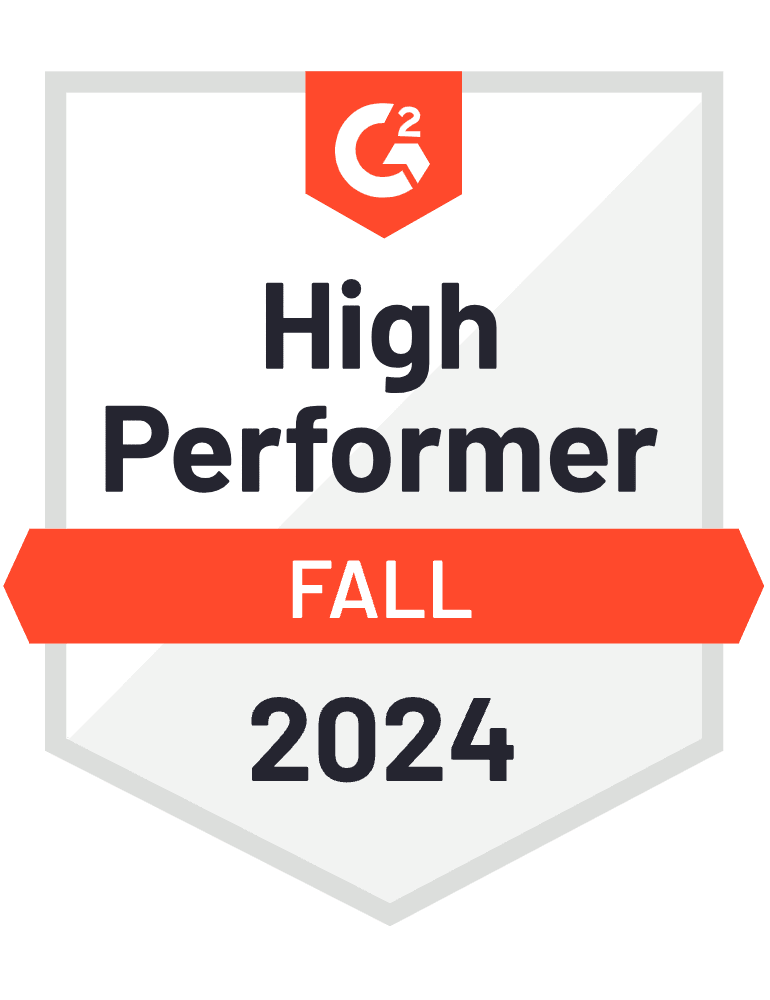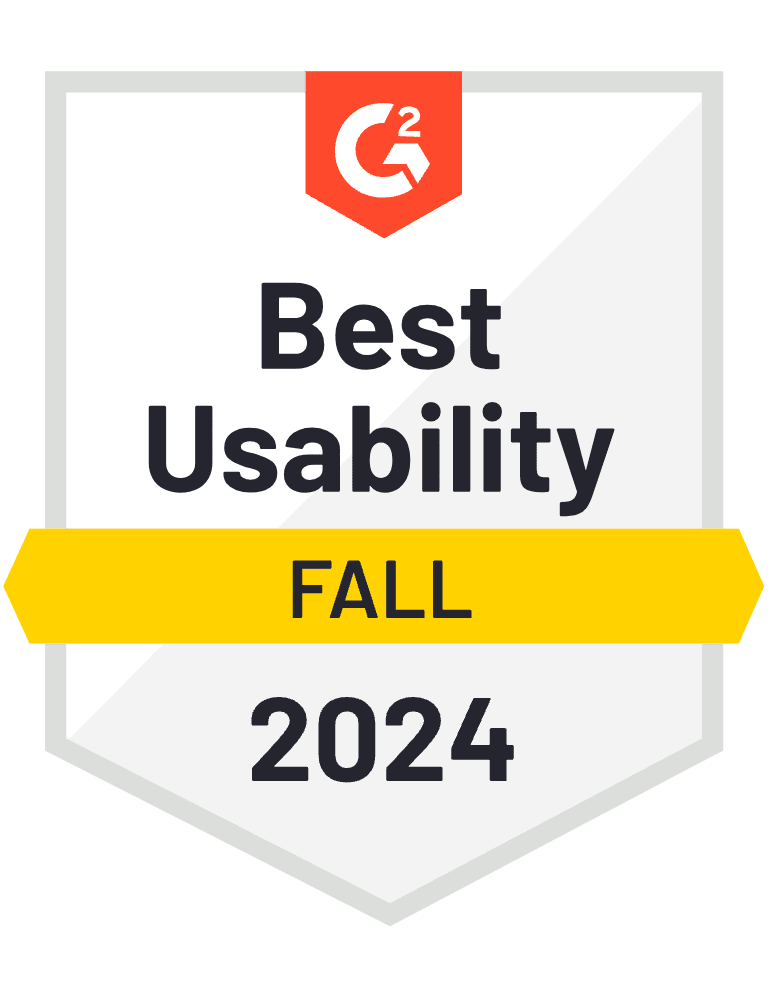3 steps to success: Take the guesswork out of 2024 HR strategy planning

As we navigate the complexities of the modern workplace, investing in people operations has never been more essential — and having a solid HR strategy is at the core. However, while crucial for cultivating a thriving work environment and driving organizational success, defining the right strategy can be challenging, especially when an unstable macroeconomic climate and a rapidly evolving workforce are shaking the foundations of traditional HR processes.
With so many moving parts, how can people leaders know which initiatives to plan for in 2024? We surveyed 2,500 global professionals to learn from HR experts on the ground and identify their intentions, concerns, and priorities in these transformative times. The resulting Workforce Trends Report can be used to galvanize the planning process and ensure strategies are aligned with the latest industry data. Learn how to adjust processes to meet the demands of today’s workforce, enable managers, and safeguard the People team’s capacities. In just three steps, this article will take the guesswork out of 2024 HR strategy planning.
🤔 Want to dig even deeper?
Get additional insights to evaluate HR processes from the ground up and exceed business expectations in 2024.
👉 Download the full report
Step 1: Leverage tools & data to optimize HR output

Currently, there’s a startling gap in how HR metrics are tracked and utilized. Our report shows that only one-third of HR leaders are monitoring crucial metrics such as employee engagement or turnover, and within this group, a mere one in three are running dedicated surveys to gather data. This leaves a wealth of information untapped, making it difficult to uncover patterns in people analytics that would enable HR to anticipate challenges and proactively address them. It also keeps People teams from gaining the insights needed to develop and implement effective HR strategies.
However, there’s a silver lining, as the world of HR is undergoing a digital transformation, embracing Artificial Intelligence at an impressive rate. Our report showed that 9 in 10 HR leaders use AI at work at least once a week, and a staggering 91% reported notable improvements to their people processes. AI’s impact and positive potential in this sphere are undeniable.

In a rapidly evolving business landscape, it’s imperative for people ops leaders to stay ahead of the curve by leveraging the latest technological advancements and data analytics. As they strategize for 2024, integrating AI and data analytics software into their HR toolkit should be a top priority, as it will enable them to make well-informed decisions, optimize their team’s performance, and ultimately contribute to their organization’s success.
To fully reap the benefits of this, it’s crucial to invest in training and developing employees, ensuring they have the necessary skills and knowledge to effectively utilize these tools. Additionally, establishing clear guidelines and best practices for data privacy and security is essential to maintaining trust and integrity within the organization.
Overall, embracing these technological solutions will not only enhance the efficiency of people processes but also ensure strategies are grounded in data, leading to more accurate and proactive decision-making.
“For a fast-scaling, remote-only business like Deel, it is essential to continuously improve our performance culture. Therefore we will move from an annual performance cycle with mid-year check-in and end-year review to a continuous model where we will collect feedback data points from all stakeholders and aggregate this in a tool to support leadership in the performance conversations.”
— Michael Lazik, Head of Expansion DACH & CEE at Deel
Step 2: Empower managers & strengthen team support

The significance of a positive manager-employee relationship cannot be overstated, especially when it comes to employee retention. With poor manager-report relations being a leading cause of employee turnover, HR leaders must equip managers with the tools and skills they need to foster stronger connections and better understand and support their teams. This includes providing regular feedback and recognition, with our report highlighting that 75% of workers are seeking more of this from their managers.
“In 2024, our focus at Awardco is crystal clear: We’re supercharging our commitment to a culture of recognition where every team member feels not just acknowledged but truly valued. However, it’s not just about more recognition; it’s about a dynamic collaboration between individuals and departments that fuels innovation and success — all driven by our culture and value of ‘Recognize the Good’ that drives teams to support and build each other up. It’s about recognizing the uniqueness each individual brings to the table and turning that diversity into our greatest strength. 2024 is all about building a workplace where everyone feels not just heard but truly understood and supported.”
— Steve Sonnenberg, Founder & CEO of Awardco
The need for trusted managers is further underscored by the fact that our report showed 29% of employees feel uneasy about raising issues with HR, so people leaders need to rely on their team leads to assume the role of reliable advisors and intermediaries. Only through empowering their managers, fostering open dialogue, and ensuring a supportive work environment can HR ensure that employee concerns are addressed promptly — and avoid impacting satisfaction, productivity, and retention.

By fulfilling the need for targeted training programs and communication tools that enhance managers’ leadership skills, HR professionals lay the groundwork for the company’s leaders to become effective coaches and communicators who support and acknowledge their teams’ efforts.
In addition to cultivating a positive working climate, this strategy also plays a key role in leadership retention, which is most impacted by individual career development opportunities. We found that an alarming 37% of managers are considering a job change in the next year — a significantly higher rate than both entry-level employees (22%) and experienced individual contributors (32%). Therefore, ensuring career growth opportunities, even at the most senior levels, is an essential component of any modern HR strategy.
🤷 Don’t leave your managers to figure it out on their own
Discover how to empower team leaders with the skills they need to drive individual and business success.
👉 Speak to an expert
Step 3: Prioritize development & plan for career growth

Supporting the career progression of employees is pivotal for maintaining high levels of job satisfaction and retention, making it an indispensable part of any people strategy. Our Workforce Trends Report showed that 36% of employees consider a lack of career growth as a reason to leave their jobs and one in three are already exploring new job opportunities. Organizations everywhere are experiencing an urgent need for comprehensive and strategic career planning.
“We are bringing more people into the offices for immersive hands-on learning and skills development, and continuing on our 2030 commitment to enrich our teams by having over 2000 team members experience another role while at Sequoia.”
— Kate Fahy, VP of People at Sequoia
In parallel with career and promotion management, a critical area demanding HR leaders’ attention is the revamp of their performance management systems. As revealed in our report, a striking one-third of the workforce is not content with the current state of performance reviews in their organization, and the majority calls for more frequent and meaningful evaluations.

To address this, establish a transparent and inclusive performance review process, ensuring that it provides a thorough and balanced assessment of each employee’s contributions and potential. Pay particular attention to the unique perspectives and experiences of different employee groups to foster a more inclusive and equitable environment. For example, it’s important to acknowledge the concerns of the 21% of women in countries like the US, France, and Germany who do not feel adequately represented in their organization’s evaluation processes. Addressing these concerns is not only a step toward equity but also enhances the overall effectiveness and fairness of performance management and promotion strategies.
The coming year should be defined by laying out clear career paths, providing the right resources, and ensuring everyone has the support they need. Consider introducing mentorship programs, ongoing learning opportunities, and opportunities to exchange regular, constructive feedback. By doing so, people leaders are not just holding onto their top talent; they’re building a resilient and engaged team ready to meet the challenges and seize the opportunities that 2024 will bring.
🔥 Want to elevate your HR strategy even further?
Download our HR strategy plan checklist to ensure your 2024 initiatives have a noticeable impact.
👉 Get your free checklist now
The future of work is up to HR
Embarking on the journey of HR strategy planning requires a nuanced understanding of the evolving needs and challenges within today’s workforce. As people professionals navigate the complexities of changing work environments, Leapsome provides the insights they can’t afford to overlook and the tools they need to craft a winning strategy that meets employee needs and leadership expectations.
This is the time to optimize every aspect of people management, from harnessing the power of people analytics and AI, to providing robust leadership training and facilitating meaningful career advancement opportunities. In this transformative era, HR leaders hold the power to shape the future of work, and the choices made today will have a lasting impact on the workforce of tomorrow.
🤝 Choose a partner committed to your vision
Discover how Leapsome can help you realize your strategy and unlock the full potential of your workforce.
👉 Book a demo
Sind Sie bereit, Ihre Strategie zur Mitarbeiterförderung zu verbessern?
Informieren Sie sich über unsere Leistungsbeurteilungen, Ziele und OKRs, Engagement-Umfragen, Onboarding und mehr.
.webp)
.webp)
 Fordern Sie noch heute eine Demo an
Fordern Sie noch heute eine Demo an






.png)


%20(1).jpg)














